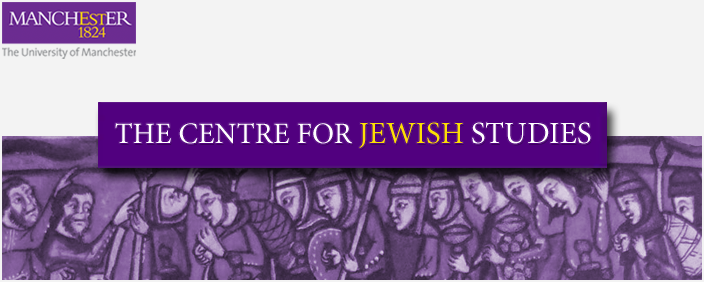The Doubting Jew: Atheism, Jewish Thought and Interfaith Relations
AHRC Leadership Fellowship 2016-17
Prof. Daniel Langton

This is an 18 month research project on Western Jewish religious engagement with atheism and scepticism.
As a study of Jewish doubt, this project focuses on the encounter between atheism and the religion of Judaism. Along with the related philosophies including scepticism, philosophical materialism and scientific naturalism, atheism is amongst the most influential intellectual trends in Western thought and society. As such, it is too important a phenomenon to ignore in any study of religion that seeks to locate the latter within the modern world. For scholars of Judaism and the Jewish people, the issue is even more pressing in that for Jews, famously, the categories of religion and ethnicity blur so that it makes sense to speak of non-Jewish Jews many of whom have historically been indifferent or even hostile to religion. The intercultural intercourse between non-religious philosophies and religion is of particular interest in the study of the dominant form of Judaism in the US, that of Reform Judaism, which since the early nineteenth-century has presented itself as a response to modernity. Likewise, interfaith encounters between Jew and Christian have in modern times taken place against the backdrop of a largely atheistic, materialist culture; one might even say that they have been accompanied by an ever-present third partner in dialogue, namely, the religious doubter. The project addresses three lacunas:
- No substantial survey of the Jewish engagement with atheism has yet been undertaken. Such a survey would fill an important gap in the historical study of atheism and the attendant religion-atheism controversy. It would also enhance an understanding of modern Jewish identity among those who both embraced and those who opposed atheistic arguments.
- No major studies of Reform or Liberal Judaism have used doubt as a category of analysis. Such a study would likely revise the historical understanding of the development of progressive forms of Judaism. While the emergence of Reform is usually presented as a response to modernity vis-à-vis Orthodox Jewish tradition and Christianity, one might just as readily focus upon discourses of doubt, specifically around atheism, scepticism and materialistic philosophies.
- No historical accounts of Jewish-Christian relations address the phenomenon of atheism. Such a study would open up a new avenue of research for scholarship of interfaith relations, ignored until now despite the high profile atheism has been given in public Christian theological discourse and the fact that, since the Enlightenment, there has been a strong tendency for Jews to work out their responses to modernity in relation to Christian thought.
Strictly speaking, Jewish engagement with atheism (i.e. disbelief in God’s existence) can scarcely be found before the modern period, unless one expands the definition to include biblical condemnations of practical atheism (i.e. non-observance) and debates about the existence of others’ gods (e.g. disbelief in the official gods of the Classical world, or disbelief in the triune God of Christianity), which generated condemnations of Jewish atheism. Likewise, serious Jewish encounters with the Greek sources of philosophical scepticism (i.e. disbelief that a true knowledge of things is attainable by humans) are rare until thinkers like Simone Luzzatto in the early-modern period, although a weaker definition of scepticism (i.e. doubts about authority and suspension of judgment in approaching sources of knowledge, whether secular or sacred) might be said to have a Jewish legacy from the time of the first-century philosopher Philo onwards, including tantalizing figures such as Elisha Ben Abuyah in the Talmud, and especially in the form of medieval fideism (i.e. the idea that faith is independent of reason). These shallow intellectual eddies of pre-modern doubt about God’s existence and nature, and about the veracity of human knowledge derived through tradition, became stronger currents with the seventeenth-century philosopher Spinoza, who was regarded by many as atheistic, and with the eighteenth-century Jewish Enlightenment or Haskalah. From that time suspicion of revealed religion began its ascendency and the ties of religion loosened so that less ambiguously sceptical expressions within Jewry began to be heard. However it was the nineteenth-century culture of scientific progress, and the attendant popular interest in ostensibly naturalistic and materialistic writings in the 1870s (especially those of Marx, Nietzsche and Freud in Germany; Spencer, Huxley, and Russell in England; and Ingersoll in the US), that provoked a sea-change in popular Jewish thought. Increasingly, the God of revelational religion simply appeared too naïve to countenance. It was from that time that a good number of Jewish religious thinkers felt obliged to establish oppositional, alternative, synthetic, or complementary models explicitly relating Judaism to the challenges of such atheistic and materialistic philosophies.




